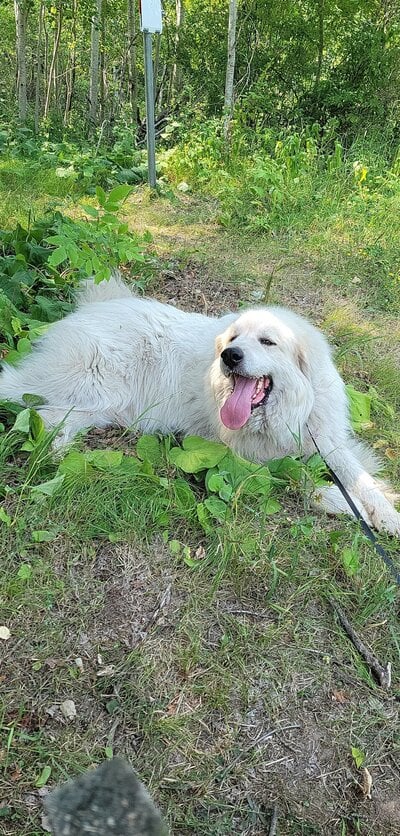Karlyann20
Hatching
- Mar 23, 2022
- 1
- 0
- 1
My boy is an Anatolian Shepard and Great Pyrenees mix he is two now and an absolute angel. He doesn't have a fence at home I just let him out and keep an eye on him. he is great with people pets and children. he is only cautious of new people and will bark. my boy had no training, all I did was socialized him a few times a week as a puppy. I would say his only issue as a puppy was excessive barking but its part of the breed so I just adapted to it. this breed is designed to scare off predator's and humans it doesn't know and at last resort fight off anything that it sees as a treat to its flock. I believe raising the dog well and some hands on time should be fine with this breed.



